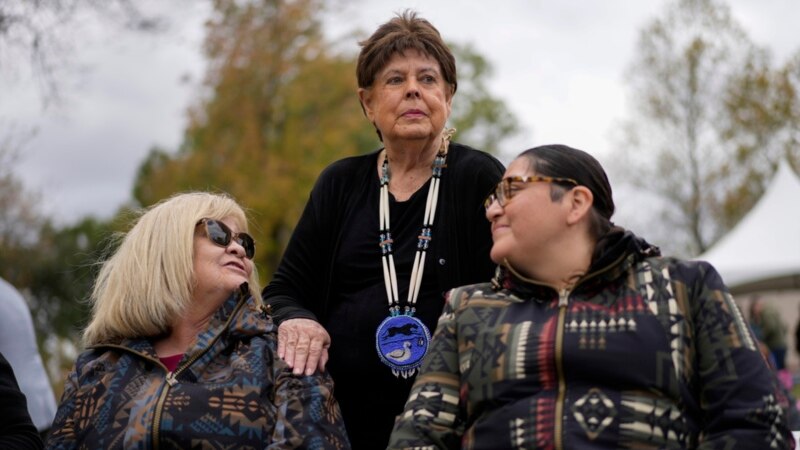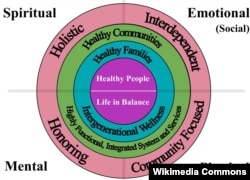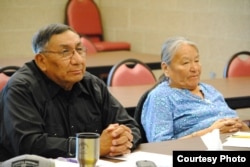This website uses cookies so that we can provide you with the best user experience possible. Cookie information is stored in your browser and performs functions such as recognising you when you return to our website and helping our team to understand which sections of the website you find most interesting and useful.

GAO: Federal agencies not living up to NAGPRA requirements
The Native American Graves Protection and Repatriation Act (NAGPRA) became law more than three decades ago, banning the removal of Native American cultural items from federal and tribal lands and calling on all federal and federally funded institutions to repatriate Native American human remains and funerary items.
A new Government Accountability Office report shows that 617 institutions across the United States continue to hold the remains of 104,539 Native Americans and nearly 2,620,000 funerary objects and have failed to meet their obligations under NAGPRA.
Read more:
California to crack down on NAGPRA noncompliance
In a related story, California Governor Gavin Newsom this week signed two bills to ensure the state’s public universities make NAGPRA a priority.
The California state auditor estimates that the California University system’s 21 campuses hold more than 698,000 items. Half of those campuses have not yet inventoried their holdings. More than half have not repatriated any items to tribes. Two campuses which have repatriated items failed to follow NAGPRA guidelines. Most cite a lack of funding and oversight.
Assembly bill (AB) 226 “strongly” urges the University of California to fund repatriation efforts in all its campuses and report on their progress. It also “strongly” urges a ban on using Native American remains and cultural items in teaching or research.
AB 389 requires the university to adopt and implement a systemwide NAGPRA policy and to create a NAGPRA oversight committee made up of “at least a majority” of tribe members.
Assemblymember James C. Ramos authored both bills. He is a lifelong resident of the San Manuel Indian Reservation and a member of the Serrano-Cahuilla tribe. In 2018, Ramos became the first California Native American to serve in the state assembly.
Feds agree to rebuild destroyed site in Oregon
In 2008, while adding a turn lane to an Oregon highway, the federal government bulldozed a site sacred to local Native American tribes, against the tribes’ objections.
The Confederated Tribes and Bands of the Yakama Nation and the Confederated Tribes of Grand Ronde then sued the government, alleging that the destruction of their sacred site violated federal laws protecting religious freedom.
The case wound its way through federal courts to the U.S. Supreme Court. On October 5, federal authorities reached a landmark settlement agreement to replant and maintain trees it destroyed, help tribes rebuild a ceremonial stone altar and guarantee access to the site.
In the video (above), produced in 2015 by the Becket Fund for Religious Liberty which represented the tribes, tribe members explain the site's spiritual significance.
Read more:
Maine tribes: Undo edits of original constitution
On Indigenous Peoples Day, a coalition of Wabanaki tribes in the state of Maine rallied at the statehouse, calling on Maine voters to say “yes” to a proposal to restore language that has been missing from printed versions of the state’s constitution since 1876.
“It’s just about transparency, truth and restoration of our history,” Maulian Bryant, Penobscot Nation ambassador and president of the Wabanaki Alliance, told participants.
Maine was originally part of the then-Commonwealth of Massachusetts and did not achieve statehood until 1820. Article X section 7 of the original Maine constitution required Maine to “assume and perform all the duties and obligations of this Commonwealth towards the Indians.”
In other words, Maine would honor any treaties and agreements Wabanaki tribes had previously negotiated with Massachusetts.
But in 1875, possibly to hide its obligations to tribes, Maine lawmakers amended the constitution, striking that language from all printed copies. It should be noted, however, that the obligations remain in full force.
On November 7, voters will be asked whether they support restoring that section to print.
Read more:
Researchers: Mental health profession must rethink treatment of Native Americans
A new report from the American Psychological Association calls on the mental health profession to develop treatment approaches based on Native American and Native Alaskan values and worldviews.
It quotes Harvard University’s Joseph Gone, an expert in global health and social medicine, who says it’s time for researchers and mental health practitioners to drop mainstream approaches and embrace “cultural humility” to avoid misdiagnosing Native Americans.
“Our way of life was considered hopelessly backwards and savage, and we were expected to become farmers and ranchers and learn reading, writing, and arithmetic,” Gone said. “The deep damage from the loss of identity contributed to postcolonial disorders such as suicide, trauma, and addiction.”
Read more:
Indigenous communities work to revitalize languages
This week, the International Conference on Indigenous Language Documentation, Education, and Revitalization (ICILDER) convened in Bloomington, Indiana, to share experiences and best practices for revitalizing Indigenous languages.
Today, only about 20% of languages once spoken across the Americans remain. VOA’s Steve Herman reported this week on efforts by one group in South Dakota to ensure the Lakota language will survive for future generations.
Read more:



 Africana55 Radio
Africana55 Radio 



